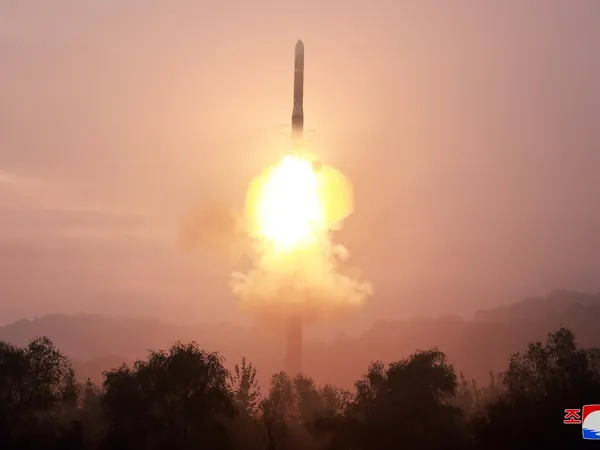
Netanyahu's Dismissal of Defense Minister Sparks Controversy Amidst War
2024-11-07
Author: Lok
Introduction
In a bold and controversial move, Prime Minister Benjamin Netanyahu has dismissed his defense minister, Yoav Gallant, amid significant public backlash and internal government discord. This unexpected decision comes as Israel grapples with a prolonged military campaign in Gaza, following the devastating Hamas-led attack on October 7, 2023, which resulted in the death of approximately 1,200 Israelis and the abduction of 250 others.
Gallant's Stance and Dismissal
Gallant, previously a high-ranking military officer, has been perceived as a moderate voice within Netanyahu's coalition, advocating for a cease-fire to secure the release of hostages held by Hamas. He was openly critical of Netanyahu's "total victory" strategy, claiming it was unrealistic and suggesting that such an approach could lead to prolonged military rule in Gaza—an outcome he deemed disastrous.
Growing Tensions
The tensions between Gallant and Netanyahu have been building for months. Their disagreements encompassed a range of critical issues, including Gallant's push for mandatory military service for ultra-Orthodox Israelis—a divisive topic in Israeli society that threatens the stability of Netanyahu's coalition, largely supported by ultra-Orthodox parties.
Public Reaction and Protests
Gallant’s firing triggered widespread protests across Israel, with public critics accusing Netanyahu of letting personal political ambitions overshadow national security concerns. Demonstrations erupted into the streets, blocking highways, as citizens expressed their frustration over the government’s handling of the ongoing war and the perceived inequities in military service obligations.
Implications of Gallant's Dismissal
Political analysts suggest that the dismissal of Gallant, who had a history of clashing with the prime minister, may lead Netanyahu to adopt more hardline policies. As the situation escalates in Gaza, with over 43,000 Palestinian fatalities reported due to ongoing military operations, the call for a reassessment of military strategy grows louder among both opposition leaders and within Netanyahu's support base.
Impact on U.S.-Israel Relations
This dismissal also underscores the complex relationship Netanyahu has with his coalition partners and the Biden administration. Gallant was viewed as a crucial interlocutor with Washington, and his ousting could further strain Israel's already tense relations with the U.S., particularly after years of complicated diplomacy surrounding issues like judicial reforms and military strategies.
Netanyahu's Replacement for Gallant
In the wake of Gallant's departure, Netanyahu has promoted Israel Katz, who is aligned more closely with his views, to the position of defense minister. Katz, a longtime ally, is expected to endorse Netanyahu's hardline approaches to both domestic and foreign policy, including the contentious issue of cease-fire negotiations and strategies regarding Hamas and Hezbollah.
Conclusion
As the conflict continues with no end in sight, Gallant's firing raises questions about Israel's future military strategies and attempts at peace with neighboring regions. The political landscape remains unstable, with Netanyahu navigating a precarious path between maintaining his right-wing coalition and addressing the growing public unrest over military policies in a time of war. Critics warn that such decisions may have long-term consequences for Netanyahu's leadership and for the broader Israeli-Palestinian conflict. The stakes are high as the Israeli public demands accountability and transparency in a conflict that has claimed countless lives on both sides.


 Brasil (PT)
Brasil (PT)
 Canada (EN)
Canada (EN)
 Chile (ES)
Chile (ES)
 España (ES)
España (ES)
 France (FR)
France (FR)
 Hong Kong (EN)
Hong Kong (EN)
 Italia (IT)
Italia (IT)
 日本 (JA)
日本 (JA)
 Magyarország (HU)
Magyarország (HU)
 Norge (NO)
Norge (NO)
 Polska (PL)
Polska (PL)
 Schweiz (DE)
Schweiz (DE)
 Singapore (EN)
Singapore (EN)
 Sverige (SV)
Sverige (SV)
 Suomi (FI)
Suomi (FI)
 Türkiye (TR)
Türkiye (TR)